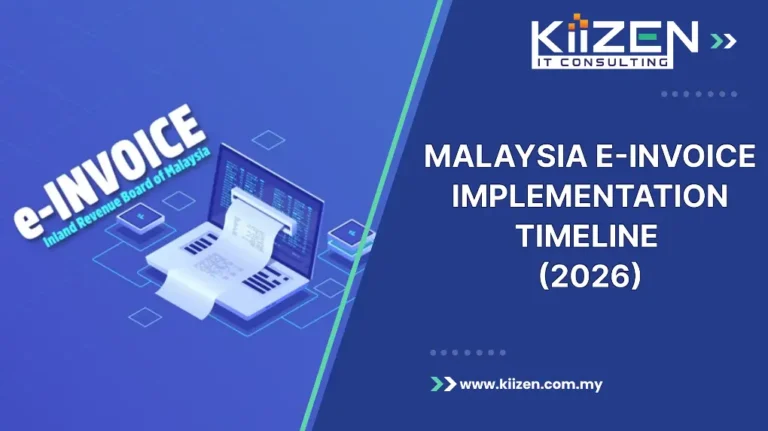The new Consumer Protection (Electronic Trade Transaction) Regulations 2024 (CPETTR2024) took effect 25 Dec 2024, replacing the 2012 regulations. They focus on online marketplace transactions. Key definitions are:
- Online marketplace: “any electronic trade platform that is conducted through electronic means by any supplier”.
- Online marketplace supplier: a person who sells or advertises on an online marketplace.
- Online marketplace operator: a person who runs the marketplace platform for trading/advertising.
These terms suggest the Regulation’s scope is primarily sellers on e-commerce platforms (e.g. Shopee, Lazada) and the platforms themselves.
Disclaimer: This article is provided for informational purposes only and does not constitute legal advice; business owners should consult legal professionals or the Ministry of Domestic Trade (KPDN) for formal clarification. Future updates or official Malaysian government guidance may refine or redefine these rules.
We will update this post when there’s more detail clarification and updates.
1. Applicability
Corporate/service websites (no online checkout):
The Regulations apply to electronic trade transactions via an “online marketplace”. A simple corporate website or service agency site that only displays pricing (with no online checkout) is generally not conducting a sale through a marketplace. In practice, such sites would likely fall outside this Regulation’s scope. (They must still comply with general consumer protection law, but not the specific online-trade rules.)
WooCommerce/Shopify stores (with payment gateway):
These sites do enable online sales, but they are the seller’s own shop rather than a public marketplace. The Regulation does not explicitly cover standalone e-commerce stores – it speaks of “marketplace” transactions. Ambiguity remains whether a proprietary e-shop counts as a “platform”. In absence of guidance, SMEs on
WooCommerce/Shopify should nonetheless treat these rules as a best practice: they can choose to follow the disclosure and language requirements to ensure compliance with consumer expectations.
Product catalog only (no checkout):
A site that only shows products and prices, without an online purchase flow, is not conducting an “electronic trade transaction.” The new rules would generally not apply because no sale can be completed online.
Such businesses should ensure transparency of information, but they are not formally bound to follow the CPETTR 2024 provisions.
Enquiry-form/invoice sales:
If a website uses an enquiry form and final payment is done offline (invoicing), it is not strictly an online transaction under the Regulation. Therefore, purely inquiry-based sites fall outside these specific rules.
Again, general consumer laws (e.g. disclosure of terms under the Consumer Protection Act) still apply, but the CPETTR’s marketplace rules would not be triggered.
Summary:
The 2024 Regulations explicitly target sellers on online marketplaces and the marketplace platforms themselves. Purely informational sites or offline transactions are not directly covered.
SMEs should review their sales model carefully: if they sell on e-marketplaces (Shopee, Lazada, TikTok Shop, etc.), they are “online marketplace suppliers” and must comply. If they only display products or sell offline, the specific Regulations likely do not apply – but it is prudent to adopt clear disclosure practices anyway.
2. Impact on Online Marketplaces
Sellers (Marketplace Suppliers)
Sellers on Lazada, Shopee, TikTok and similar must meet several new obligations under the 2024 Regulations:
- Mandatory Disclosures: Each seller must disclose on the marketplace all information in the Schedule (see below). This includes seller identity, contact details, product specs, price, etc. All such information must be in Bahasa Malaysia (national language), though other languages (e.g. English) may be added as a supplement.
- Accuracy of Information: Disclosed information must be truthful; providing false or misleading info (any Schedule item) is an offence. Sellers should double-check that their listings (prices, descriptions, certificates, etc.) are accurate.
- Pricing and Payment: Sellers must state the full price (including all costs) and accepted payment methods. If goods are faulty or materially different, the seller bears the cost of re-delivery (the customer cannot be asked to pay extra shipping for replacements). This is a new explicit duty. Sellers must also deliver any promised services “reasonably fit” for purpose (e.g. assembly, installation).
- Order Handling: The Regulation requires sellers to provide a way for customers to correct order errors (e.g. wrong size, address) both before and after confirming an order. Sellers must also immediately acknowledge receipt of orders (e.g. via automated confirmation) without undue delay. These help protect buyers from mistakes.
- Product Certification: If goods/services require official certification (e.g. SIRIM, NPRA/MDA approvals), sellers must upload proof. Item 10 of the Schedule mandates: “Certificate that the goods or services have followed the standard of safety and health as determined by the competent authority, if any”. Some marketplaces already require this (for electronics, cosmetics, etc.), and it is now codified by law.
Marketplace Operators (Lazada, Shopee, TikTok Shop, etc.)
Lazada, Shopee, TikTok Shop, etc., have new duties as platforms under the 2024 Regulations:
- Enforcement of Disclosures: Platforms must ensure all sellers comply with Regulation 3 (the disclosure rules) before allowing any sale. In practice, this means the platform should prevent a listing from going live unless the seller has filled in all required fields (name, contact, price, etc.).
- Complaints Channel: Operators must provide a channel (e.g. online form or helpline) for purchasers to lodge complaints about any electronic transaction. This formalizes the duty to help consumers resolve disputes.
- Monitoring Content: Operators must ensure no advertisements or listings on their platform violate any provision of the Regulations. Essentially, they must block or remove listings that fail to meet the rules.
- Record-Keeping: Operators must keep and maintain records (for 3 years) of their sellers, including each seller’s name, address, contact, business registration, and transaction history. This extends the old 2-year requirement to 3 years, and now explicitly includes operators (2012 applied record-keeping only to operators as well). Notably, paragraph (2) of Reg.8 makes even sellers themselves responsible for keeping their own transaction records.
- Offences: The Regulations make it an offence for any person (seller or operator) to fail to comply with any provision. Penalties for non-compliance can be severe (fines and imprisonment under the Consumer Protection Act). Marketplace operators will likely enforce these rules (e.g. by delisting non-compliant sellers), and consumers may report breaches to KPDN.
Overall, any SME selling on Lazada/Shopee/etc. must update its listings and processes to meet these requirements. Operators must revise their seller onboarding and listing systems to collect and display the required information and to monitor compliance.
3. Key Changes from the 2012 Regulations
The 2024 Regulations replace the 2012 rules. Table 1 highlights the main differences:
| Requirement | 2012 Regulation (P.U.(A) 458/2012) | 2024 Regulation (P.U.(A) 449/2024) |
| Scope/Definitions | Covered any person selling via a website or online marketplace. “Online marketplace” meant a website where goods/services are marketed by third parties. | Targeted specifically marketplace sellers (“online marketplace supplier”) and operators. “Online marketplace” is defined broadly as any electronic trade platform by any supplier. (No explicit clause for standalone e-shops.) |
| Seller Disclosures (Schedule) | Must disclose (on their website/marketplace) items 1–8: (1) Seller name (person/business/company); (2) Business/registration number; (3) Contact (email & phone, or address); (4) Product details; (5) Full price (incl. taxes, shipping); (6) Payment method; (7) Terms/conditions; (8) Delivery time. | Must disclose (on marketplace) items 1–10: (1) Seller/supplier name; (2) Website address (if any, new); (3) Email & phone; (4) Business address; (5) Product description; (6) Full price (incl. all costs); (7) Payment method; (8) Terms & conditions; (9) Delivery time; (10) Safety/health certification (if applicable). Notably, 2024 drops the old business registration number (replaced by website URL) and adds item (10) certification requirement. |
| Language of Disclosures | No language requirement – disclosures could be in any language. | Mandatory Bahasa Malaysia: All disclosures must be in the national language (other languages may be used in addition). This is a new requirement. |
| Error Correction & Order Acknowledgment | Required sellers to allow order error correction and to acknowledge orders (Reg.4). | Carried forward: Sellers must enable error correction and promptly acknowledge orders. (Similar to 2012) |
| Delivery/Services Obligations | No explicit rule on bearing return costs or service quality. | New obligation: Sellers must bear re-delivery cost for defective/wrong items, and deliver services exactly as promised. |
| Operator Duties | Operators were only required to keep 2-year records of sellers. | Operators now must enforce seller compliance, provide complaint channels, and monitor listings. The record-keeping period is extended to 3 years, and sellers themselves must keep transaction records for 3 years. |
| Offences/Penalties | Violations (e.g. nondisclosure or false info) were offences (subject to CPA penalties). | All failures to comply are offences. Higher fines (up to RM100k or imprisonment) may apply under the Consumer Protection Act for first offences. (The 2012 regs did not specify penalties, but enforcement was under the Act.) |
Many 2012 provisions are carried over (e.g. rectification of errors, acknowledging orders, price disclosure). However, the 2024 Regulations broaden the definition of platform, tighten language rules, add new seller duties (redelivery cost, certifications), and impose explicit platform responsibilities.
In summary, SMEs should view the 2024 rules as a superset of the old requirements – meeting the new rules will generally satisfy (and exceed) the old 2012 obligations.
4. Compliance Checklist for SMEs
Checklist: Key steps to comply with CPETTR 2024
- Identify if it applies: Determine whether you are an “online marketplace supplier.” If you sell on platforms like Shopee, Lazada, TikTok Shop, you are covered. If you only have a brochure site or take orders offline, the rules may not apply, but it’s best practice to be transparent.
- Update Seller Profile & Listings: Ensure every product listing and your seller profile on the marketplace includes the mandatory information (Schedule items):
- Seller’s full name or company name.
- Website address of your shop/platform (if you have one).
- Email address and telephone number.
- Physical address of business.
- Description of goods/services (main features).
- Full price of goods/services (including all fees/taxes/shipping).
- Accepted payment methods.
- Terms and conditions of sale.
- Estimated delivery time.
- Certification of product safety/health standards (if applicable).
All this information must be clearly visible on the online listing or seller profile.
- Use Bahasa Malaysia: Provide the above information in Bahasa Malaysia. This means product titles, descriptions, seller name, terms, etc., must be in Malay. You may add English/Chinese translations as needed, but Malay must appear (the Regulations require the national language “shall be” used). For example, a product title could be “Pencuci Muka (Facial Cleanser)”.
- Display Certifications: If your product category requires Malaysian certifications (e.g. MDA for medical devices, NPRA for cosmetics, SIRIM-verified electronics), upload or provide these on your listing. Marketplaces often have fields or document upload functions for this.
- Order Processing: Implement order procedures that allow buyers to correct mistakes (size, quantity, address) before or immediately after checkout. Ensure your system sends an automatic order confirmation to the buyer as soon as the order is placed.
- Returns & Redelivery Policy: Write a clear returns policy. If a product is defective or not as ordered, you must cover the return/re-delivery cost (not charge the buyer extra). State this in your policy or FAQ (e.g. “If item is faulty or wrong, re-delivery is at our expense”).
- Record-Keeping: Keep all transaction records (order details, payment receipts, correspondence) and supplier records for at least 3 years. This includes a copy of all required disclosures and certificates shown on your site.
- Compliance Audit: Review each listing on your marketplace to make sure no required field is missing. Many platforms have checklist or compliance features – use them. Correct any omissions (e.g. add missing price or T&C).
- Consult Official Guidance: Where in doubt, refer to KPDN’s official FAQ or circulars (when available). For certainty, consider legal advice to interpret whether your specific e-sales model falls under these regulations.
By following this checklist, SMEs can align their online sales with the new legal requirements and avoid penalties. The goal is transparency and consumer protection, so err on the side of providing more information (in Malay) rather than less.
5. SEO and Visibility Implications
The Bahasa Malaysia requirement poses SEO considerations for Malaysian sellers:
- Search Language Shift: Since all product titles and descriptions must be in Malay, listings that were previously English-only might drop in search visibility for English queries. On marketplaces and search engines, users commonly search in both languages. Without English keywords, an English-speaking user might not find your product.
- Bilingual Strategy: Mitigate this by adopting bilingual content. Write product titles/descriptions primarily in Malay (to comply), but include English keywords as additional words or in supplementary fields. For example:
- Title: “Wireless Mouse USB 2.4GHz – Hitam (Black)” – the Malay name first, with English in parentheses.
- Description: Start in Malay, then add an English section labeled as translation.
- Tags/Meta: Use available fields for English keywords (e.g. Shopee’s “Search Keyword” field) so that English search terms can still match your listing.
- Maintain English Metadata: If your website or marketplace allows separate metadata (meta description, alt text, etc.), fill those with English terms in addition to Malay. Some platforms allow uploading images with alt-text – include key English phrases there. This helps capture English search traffic.
- Use Malay Keyword Research: Optimize for Malay search behavior: try to use Malay keywords that customers use when browsing in Malay. By using Malay, you tap a large, underserved audience and may face less competition (English keywords are heavily contested).
- Leverage Platform Features: Many e-marketplaces allow you to list products in multiple languages or to input keywords in various languages. Fill out all language options. For instance, Lazada has separate language options for listings; if you sell cross-border, you can list in Malay and also in English/Chinese on different Lazada sites.
- Bilingual SEO Tips: In short, treat Malay as your primary SEO language (title, description, headings) and English as secondary. This bilingual SEO approach will help ensure Malay compliance while maintaining discoverability. SEO guides note that Bahasa Malaysia SEO is critical in Malaysia’s market. For example, using both languages can capture searches like “baju kurung wanita” (Malay) and “women’s kurung” (English).
- Monitor Traffic: After implementing Malay content, monitor your sales and traffic. Use analytics (Google Analytics, or marketplace seller stats) to see if there’s a drop in English-sourced traffic and adjust by adding more multilingual content.
Over time, buyers may learn Malay terms as well. The extra effort of bilingual content will improve compliance and can improve ranking for Malay-speaking shoppers (who form a large majority of the market).
Overall, while the national language requirement is intended to protect consumers, it need not cripple discoverability. By smartly combining Malay and English in your SEO strategy (e.g. “bilingual listing approach”), SMEs can stay compliant and remain visible in searches.
Table 1. Comparison of Key Provisions: 2012 vs. 2024 Regulations
| Item | 2012 Regulations | 2024 Regulations |
| Platform scope | Any website selling goods/services; “online marketplace” meant sites with third-party sellers. | Specifically online marketplaces (e.g. Shopee, Lazada); defined broadly as “electronic trade platform” by any supplier. Standalone e-shops not explicitly mentioned. |
| Seller Info | Seller name, business reg. no, contact (email/phone or address). | Seller/supplier name; no reg. no required (instead include website URL); email, phone, business address. |
| Product Details | Product description, full price (incl. taxes/shipping), payment method, T&C, delivery time. | Similar items 5–9 in Schedule, plus new item “safety/health certification”. |
| Language | Not specified (language of content was open). | Disclosures must be in Bahasa Malaysia (other languages allowed additionally). |
| Returns (faulty) | No explicit rule on costs for defective goods. | Seller must bear re-delivery cost for defective/different goods. |
| Order Corrections | Sellers must allow buyers to correct order errors and acknowledge orders (Reg.4). | Carried over: Same requirements for error correction and immediate order acknowledgment. |
| Operator Duty | Only record-keeping (keep supplier details 2 yrs). | New obligations: enforce seller compliance, provide complaint channel, vet listings; record-keeping extended to 3 years. |
| Penalties | Violations (e.g. nondisclosure, false info) were offences under CPA; no specifics in reg text. | Any non-compliance is an offence. Penalties under Consumer Protection Act apply (fines/jail). |
Each of these changes should be noted by SMEs. In practice, many 2012-era obligations (like rectification of orders) remain, but the new Regulations add language, certification, and return-cost rules. SMEs should review the 2024 text (and any official guidance) to ensure ongoing compliance.
Sources:
Malaysian government publications and reputable analyses of the 2024 Regulations have been consulted, including the official gazette and authoritative summaries. The consumer-friendly summaries by industry platforms (e.g. Shopee seller guides, BigSeller) align with these provisions and emphasize the Bahasa Malaysia requirement and disclosure checklist. In all cases, SMEs should rely on the official regulation text and seek legal advice if needed to interpret their obligations.
- PERATURAN URUSNIAGA PERDAGANGAN DALAM ELEKTRONIK 2024.pdf
- Consumer Protection (Electronic Trade Transactions) Regulations 2012.pdf
- Final separate – ESCAP-RP-2024-RDTII-Economy profile 2024
- E-Commerce in Malaysia: What You Need to Know
- Consumer Protection Regulations: 3 Things Every TikTok Shop Seller in Malaysia Must Do Now
- Review of Malaysia’s electronic commerce law to be completed by March 2025
- E-Commerce Laws and Regulations in Malaysia
Clarification: Are Non-Transactional Websites Affected?
The 2024 Regulations define an:
“Online marketplace” as “any electronic trade platform that is conducted through electronic means by any supplier.”
— CPETTR 2024, Regulation 2
This definition sounds broad, but based on the intent of the regulation and how it uses this term throughout:
- The regulation consistently refers to electronic trade transactions, not just electronic advertising or general web presence.
- It emphasizes transactions, including price disclosure, order confirmation, payment, and fulfillment obligations.
- It places duties on sellers and operators related to actual selling and delivery of goods or services.
Therefore, a normal business or corporate website that only displays information (e.g. pricing tables or catalog) and does not allow users to complete a transaction online (no payment, no automated order submission), is very likely not considered an “online marketplace” or “electronic trade platform” under this regulation.
However:
There remains grey area, especially for:
- Websites with product catalogs and an enquiry form (that results in a sale later via invoice).
- Online service providers (e.g. SEO agencies) that allow users to “book” or “submit a service request.”
Until the Ministry (KPDN) provides official guidance or case examples, businesses should:
- Exercise caution,
- Be transparent with pricing and terms,
- Consider adopting best practices from the regulation to preempt future requirements.
FAQ – Consumer Protection (Electronic Trade Transaction) Regulations 2024 for Malaysian SMEs
1. Does this regulation apply to websites that don’t sell anything online?
Not directly. If your website doesn’t process payments or orders online (i.e., no checkout, just contact forms or info display), you likely fall outside the regulation’s main scope. The rules focus on online trade transactions, not basic web presence.
2. If I run a corporate website with a price list and enquiry form, am I affected?
Probably not. As long as no actual transaction (sale, payment) happens on the website, it is not considered an “online marketplace.” However, if your enquiry form acts like a soft order placement, your risk exposure increases.
3. I use Shopify/WooCommerce and accept online payments – am I affected?
Yes. Even though your website isn’t a third-party “marketplace” like Shopee, your own site becomes a self-operated electronic trade platform. You should treat your store as an “online marketplace supplier” and comply with all disclosure, language, and delivery requirements.
4. Do I need to provide all the mandatory information in Bahasa Malaysia?
Yes. The regulation requires all disclosures to be in the national language (Bahasa Malaysia), though other languages (like English or Chinese) may be added. This includes product titles, descriptions, terms, prices, and certifications.
5. What if I only sell on Shopee or Lazada – do I need to worry about this?
Yes. Sellers on marketplaces like Shopee, Lazada, or TikTok Shop must comply. You must provide accurate business and product information, comply with refund/delivery duties, and display all information in Bahasa Malaysia.
6. What if I sell via Instagram DMs or WhatsApp – does this count?
If you advertise on social media but the sale is completed through a third-party marketplace (Shopee, etc.), then yes – your sale falls under these rules. But if you don’t complete the sale online (e.g., invoicing later or bank transfer manually), it may not be considered an electronic trade transaction under this regulation.
7. Does the regulation apply to services like web design or SEO services sold online?
Only if those services are transacted online (e.g., users can directly order and pay for a service online). If your site is purely informational or just takes enquiries, you’re likely not under the regulation’s main enforcement scope.
8. Is this regulation replacing older laws?
Yes. It revokes the 2012 Electronic Trade Transaction Regulations, though many core elements remain. The 2024 version expands scope and includes new requirements like Bahasa Malaysia language enforcement, mandatory certifications, and record-keeping.
9. Can I just rely on my marketplace (like Lazada) to handle compliance?
No. While platforms are required to enforce compliance from sellers, you are still personally liable as the seller for meeting the disclosure and product accuracy rules. Marketplace rules will likely evolve to help you meet these obligations.
10. What happens if I don’t comply?
Non-compliance is considered an offence under the Consumer Protection Act 1999. Penalties may include fines and legal action. Marketplace platforms may also suspend or delist your account if you violate the regulations.
Disclaimer
This article is provided for informational purposes only and does not constitute legal advice. While we strive to interpret the regulation based on the official gazetted document and expert sources, the actual enforcement scope and interpretations may evolve.
We are not lawyers. Business owners are strongly advised to consult with legal professionals or the Ministry of Domestic Trade (KPDN) for formal clarification.
Further updates or official guidance from the Malaysian government may refine or redefine how these rules are applied in practice.
We will keep this article updated.






